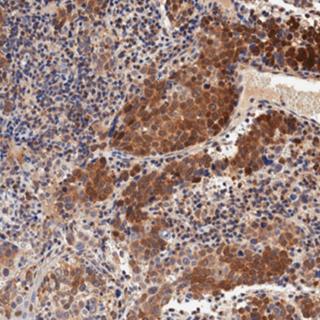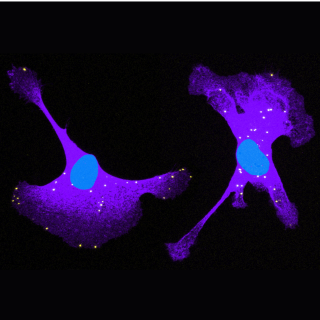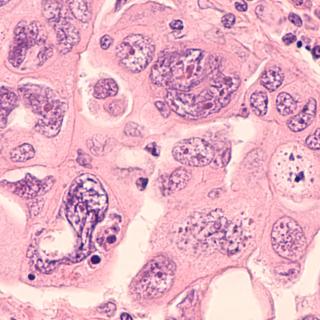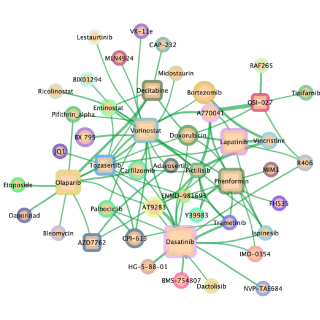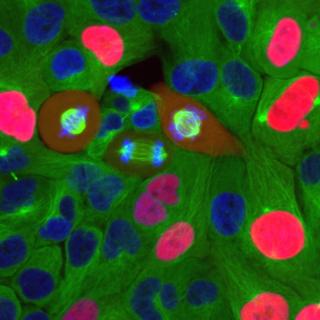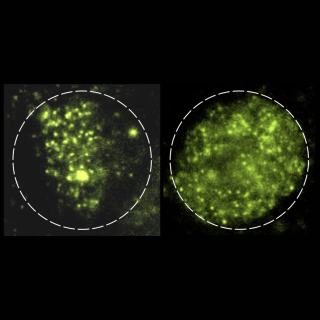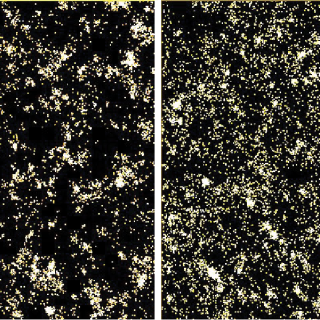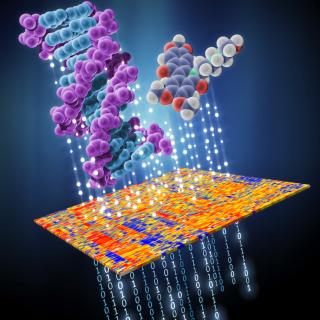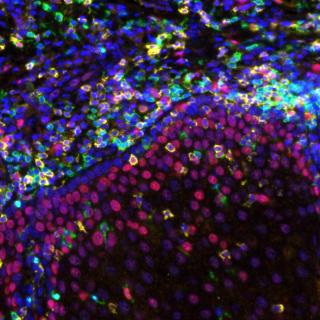Our Discoveries
Chromatin modifier linked to immunotherapy resistance in HPV-negative head and neck cancers
Researchers have discovered that a chromatin-regulating enzyme called SMYD3 limits the access of cancer-attacking immune cells to HPV-negative head and neck cancers, therefore decreasing immunotherapy’s effectiveness. Depleting SMYD3 increased the cancer’s sensitivity to a standard immunotherapy drug in mouse models.
Read MoreNew insights explain how the same protein can serve different functions
Proteins can often choose between potential interacting partners and serve different functions inside cells. How these choices are made is not entirely clear. New research shows that the exact location in a cell where the protein is produced and the rate of its synthesis are key factors in this choice.
Read MoreNew T-cell therapy shrinks solid tumors in early-phase clinical trial
Trial results show that engineered T cells can effectively target mesothelin, a protein found on many solid tumors.
Read MoreStudies of an experimental ovarian cancer therapy identify a biomarker of treatment response
A new biomarker may identify patients who can benefit from drugs that inhibit CHK1 after their ovarian cancer has become resistant to PARP inhibitors.
Read MoreNew analysis reveals potential effective drug combinations for treating lung cancer
Researchers compared more than 5,000 drug combinations in lung cancer cells, the results of which point to combinations that may be particularly effective in combating cancer in humans.
Read MoreCells’ decision to divide is reversible
Surprising findings show that cells that are preparing to divide can return to a resting state if they lose growth signals, even after they have passed what was previously thought to be a point of no return.
Read MoreDrug combination provides a one-two punch attack against colorectal cancer
Researchers have identified a drug that, when combined with TOP1 inhibitors, results in improved efficacy in human colorectal cancer models — a finding that may apply to other cancers treated with TOP1 inhibitors. The results also yield important insights into our basic understanding of DNA replication and repair.
Read MoreTargeting sugar-molecule tags to proteins in the treatment of aggressive lymphomas
CCR researchers, led by Louis M. Staudt, M.D., Ph.D., have discovered a novel approach to treating diffuse large B-cell lymphoma with potentially fewer treatment-related side effects. Their work identifies and exploits the role of sugar-molecule modifications in B-cell survival.
Read MoreWith new database, NCATS data is poised to support development of precision cancer therapies
Data from thousands of compounds and nearly 200 cancer cell lines screened at the National Center for Advancing Translational Sciences are available through a new CellMiner database.
Read MoreHow immunotherapy before surgery boosts systemic immunity in head and neck cancer
Some evidence suggests that immunotherapy before surgery to remove head and neck tumors can decrease the chances of cancer recurrence, but the reasons for this observation are unknown. New research details how the treatment regimen boosts the number and dispersion of tumor-fighting immune cells throughout the body.
Read More